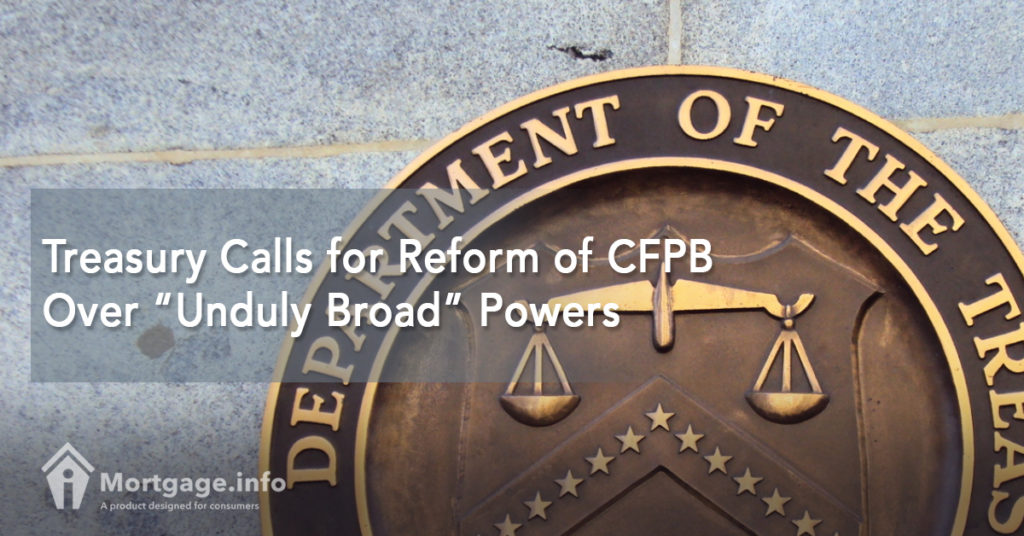“A significant restructuring in the authority and execution of regulatory responsibilities by the CFPB is necessary,” the U.S. Department of Treasury headed by Sec. Steve Mnuchin said in a report submitted to President Trump on June 12.
The Treasury Department submitted to Pres. Trump its report titled “A Financial System That Creates Economic Opportunities“. The first of a series of reports, the present report looks into banks and credit unions in the U.S. as well as financial regulatory agencies overseeing these institutions, particularly the Consumer Financial Protection Bureau (CFPB).
In the report, the Department recommends for the reform of the CFPB “whose unaccountable structure and unduly broad regulatory powers have led to predictable regulatory abuses and excesses.” Among its proposed reforms is for the Agency’s Director be removed as the President wills – a provision included in the Financial CHOICE Act whose passage in the House of Representatives was praised by Sec. Mnuchin.
The CFPB Problem
The Department recognizes that the CFPB has been entrusted with an important mission but finds fault with the way it makes rules and enforces them. “The CFPB’s approach to rulemaking and enforcement has hindered consumer access to credit, limited innovation, and imposed unduly high compliance burdens, particularly on small institutions,” according to the Treasury report.
Created by the Dodd-Frank Act, the Agency has regulatory authority over insured banks, thrift banks, and credit unions with assets over $10 billion. This authority extends to non-bank residential mortgage originators, brokers, and servicers.
This significant power bestowed on the Agency, notes the Department, leaves few checks and banks necessary to curb regulatory abuses and arbitrary decision-making. It also points to the unilateral authority wielded by the Agency’s Director over financial laws affecting any consumer’s major decisions from buying a home to paying for college.
Apparently, the CFPB Director does not answer to the Congress or the President and can only be removed for “inefficiency, neglect of duty, or malfeasance in office during his five-year statutory term.”
The Department finds the Agency’s substantive authority as unduly broad, ill-defined, and susceptible to abuse. It also believes that the Agency has exercised its authority in a way that it maximizes its discretion instead of creating a stable regulatory environment.
The CFPB Reform
Against this backdrop, the Department recommends the following that it deems will make the CFPB more accountable to the President, Congress, and the American people:
- To make the CFPB Director removable at will by the President or in the alternative, to restructure it as an independent multi-member board or commission;
- To fund the CFPB through the Congress’s annual appropriations process;
- To adopt reforms ensuring that regulated entities will have adequate notice of interpretations of law made by the CFPB before they can be subjected to enforcement actions;
- To curb abuses arising in enforcement and investigation actions;
- To expand the CFPB’s retrospective regulatory review;
- To improve safeguards for the CFPB’s Consumer Complaint Database; and
- To eliminate the CFPB’s duplicative and unnecessary supervisory authority.
“The regulatory environment should protect consumers’ interests and allow banks adequate leeway to exercise reasonably constructed consumer lending regimes, giving consumers the broadest array of choices, supported by appropriately designed and implemented compliance regimes,” the Department writes.
“The regulatory environment,” the Department adds, “should also promote financial inclusion, bringing more consumers into the banking system and out of less regulated markets.”

